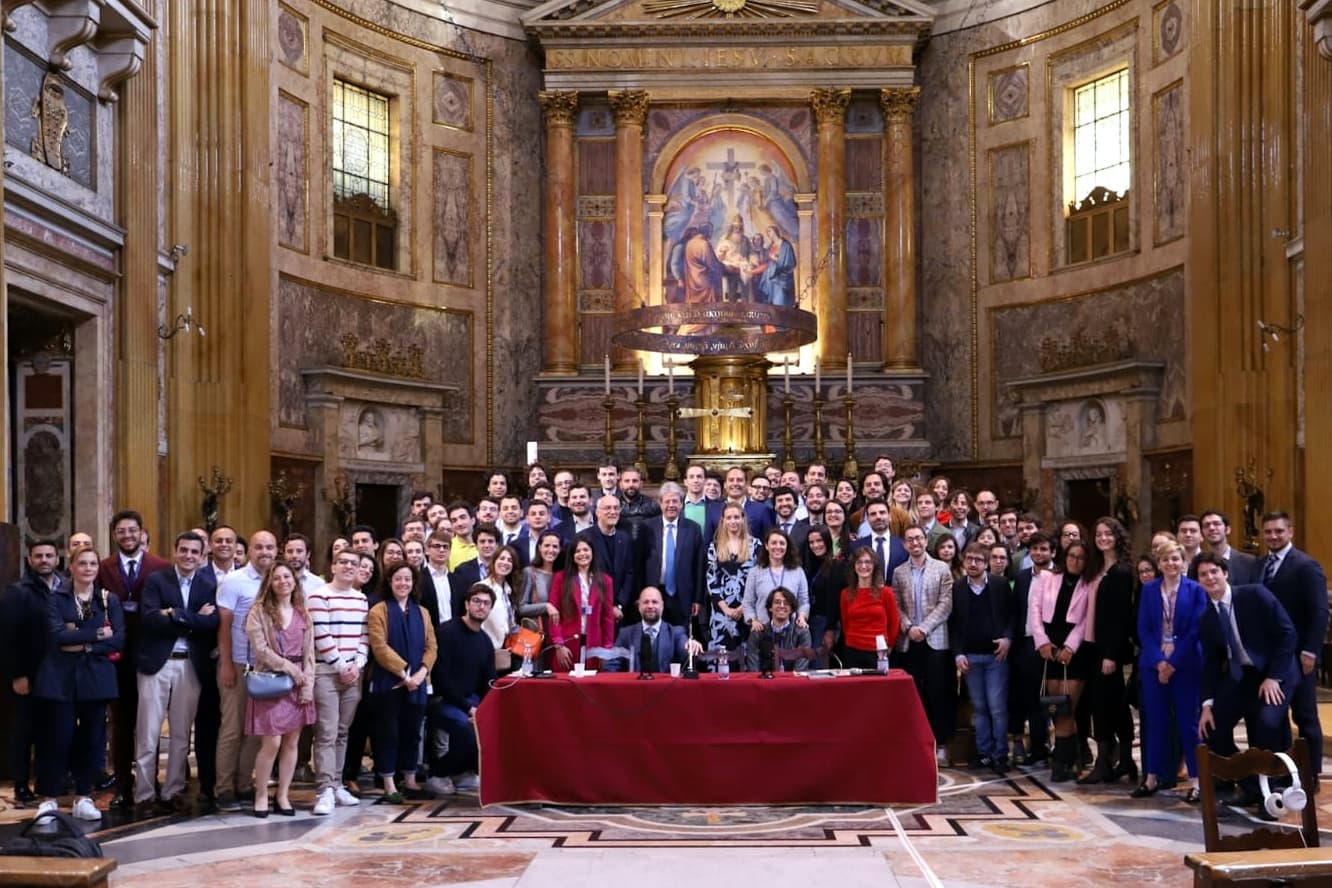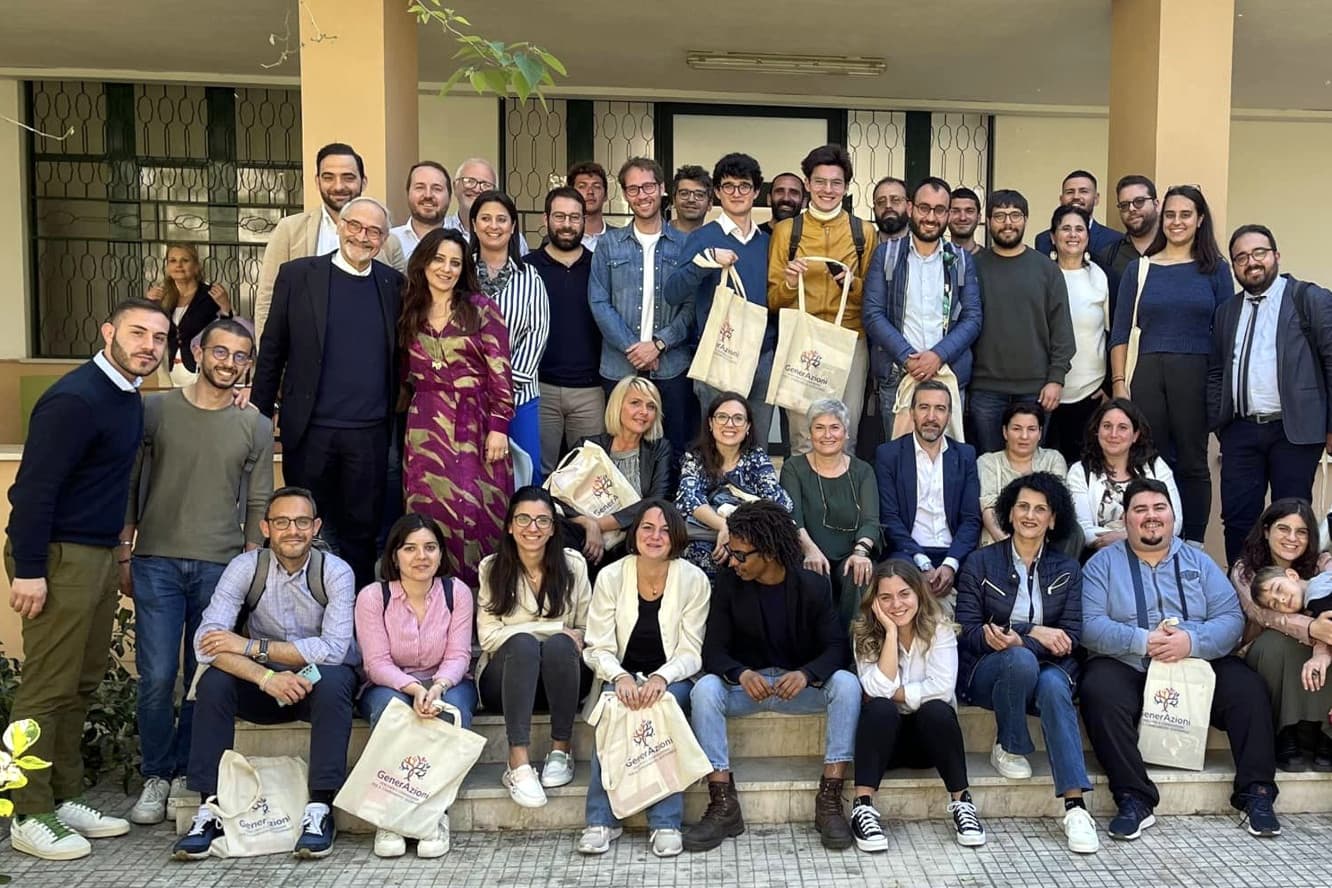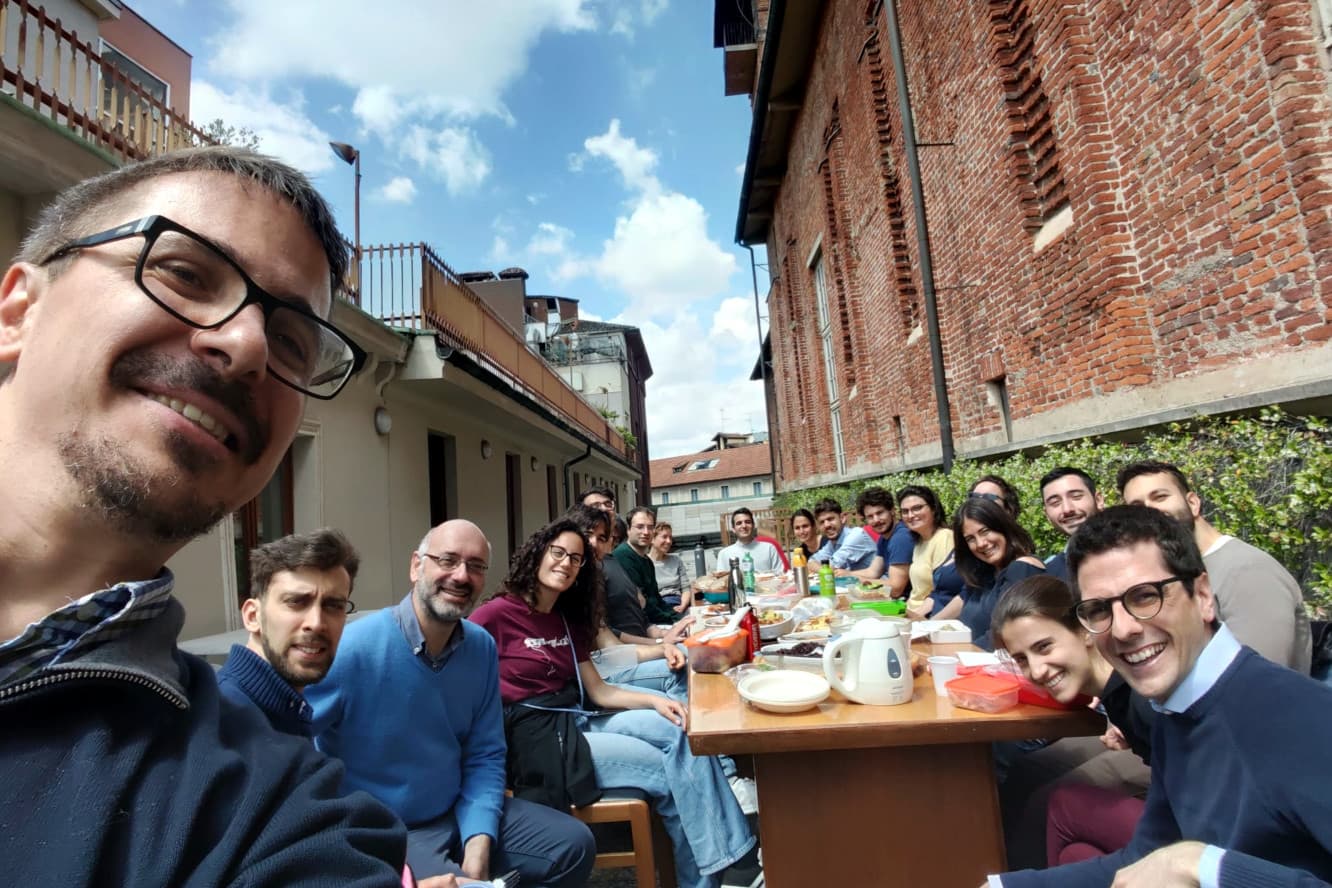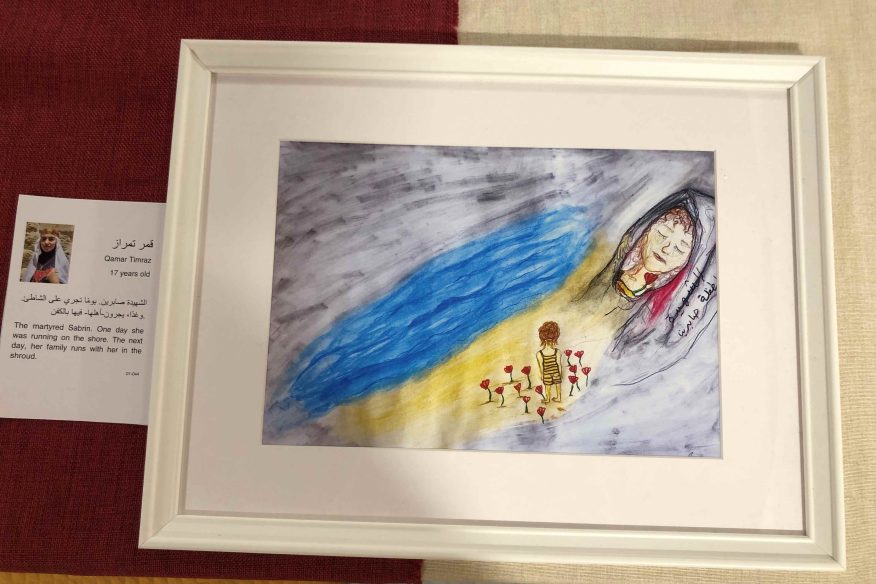‘The Art of Children from the Heart of the Gaza Strip’ is an international travelling exhibition that will be open until 31 March at the Casina Whitaker on the Gonzaga… Read more
Jesuits and politics: our formation programs

The political crisis? It calls for a change of course. Administering communities takes place not through a new party but through a new method which brings together good practices. So, since 2009 there have been three experiences initiated by Jesuits in Rome, Palermo and Milan. The vision: to generate change.
Comunità di connessioni – Rome
Comunità di connessioni (“Community of Connections”) was founded in 2009 in Rome as an association committed to exploring issues of social and political life in light of the Church’s Social Doctrine and the principles of the Constitution, which establish and promote the dignity of the person.
A nonpartisan and pluralistic entity, Comunità di connessioni has established dialogue and confrontation as its working tools. It offers political formation programs, spiritual dialogues among professionals, publishes an online magazine and collaborates with several newspapers, works through commissions connecting experiences among administrators at the local level, offers annual spiritual retreats and offers formation to businesses and administrators, and collaborates with the Vatican Foundation Fratelli Tutti. Fr. Francesco Occhetta coordinates this initiative.
The “formpol” formation journey offers five meetings each year with the participation of ministers, faculty and association leaders and an official event is also organised. People and structured practices have established it as a community, rich in contacts by linking virtuous points of experience. More than 1,000 people have been involved over the years.
GenerAzioni – Palermo
“GenerAzioni” is the journey offered in Palermo by the “Pedro Arrupe” Political Formation Institute, in the wake of the school founded by Fr. Bartolomeo Sorge in 1986. This is an intergenerational workshop for community leaders, committed to the regeneration of territories, able to identify problems and opportunities. About 40 people were involved in 2023. They range in age from 18 to 55, all with experience in civic engagement. Social change, third sector, active citizenship, direct engagement in politics are some of the concrete points that emerged. “It is a residence for those who intend to work in the social field and engage in the community to give new life,” explains Fr. Gianni Notari. “Faced with the crisis of politics we believe that we need to reverse course. We are convinced that it is necessary to get out of the private dimension and personal self-references to turn to the building of communities.”
I Care Lab – Milan
Promoted by Aggiornamenti Sociali magazine and a think tank of the Italian Jesuits, “I Care Lab” was set up in Milan. The program of six-monthly meetings consists of exploring personal motivations, to difficulties in the field of work, to procreative communities as well as witnessing, games, simulations, moments of sharing and exchange. Thirty young people aged between 21 and 35 took part from Lombaria, Liguria and Tuscany. “A positive response that encouraged us to go ahead,” Fr. Giuseppe Riggio, who heads the initiative explains. “We cultivate a dream which is to develop within the participants the ability to confront the complexity of the reality in which they live and operate, to be attentive to individual episodes without losing sight of the broader socio-political framework where they are inserted, to look upon realities even the most distant from us, to recognize the positive and productive forces within a territory and a community, in order to be able to collaborate with them in carrying out their service.”
The Ignatian pedagogical paradigm is recognizable in the “watermark” of all three experiences: starting from experience – personal or that of witnesses – reviewed and amended in order to arrive at forms of action and intervention in different contexts, through personal discernment and the common good.



